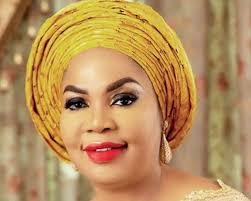The Federal Government has called on state governors to adopt the newly approved minimum wage of ₦70,000, urging them to treat it as a special New Year package for workers across all sectors.
This plea came from the Minister of State for Labour and Employment, Nkeiruka Onyejeocha, during a press briefing in Abuja over the weekend. Onyejeocha expressed optimism that states yet to implement the policy would begin payments early next year, fostering industrial peace and averting further strikes.
Speaking to journalists, Onyejeocha highlighted the government’s efforts to ensure smooth relationships between employers and labour unions. She revealed that the National Industrial Relations Policy (NIRP) had been launched as a framework to strengthen industrial harmony across the nation.
“Most states have keyed into the implementation of the ₦70,000 minimum wage,” Onyejeocha stated. “Even those yet to commence payment have not outrightly refused. We believe they will consider this as a New Year gift to their workers.”
Her statement aligns with President Bola Tinubu’s administration’s focus on improving the welfare of Nigerian workers. Earlier this year, Tinubu pledged that no worker would be left behind, especially amidst rising economic pressures.
Onyejeocha also unveiled a bold new initiative by President Tinubu: the Labour Employment and Empowerment Programme (LEEP). This programme aims to generate 2.5 million jobs annually over the next four years, a move designed to tackle Nigeria’s soaring unemployment rate.
“LEEP is a visionary programme that will transform employment opportunities in Nigeria,” Onyejeocha said. “It aligns with our mission to empower citizens and ensure economic growth.”
The ambitious project is expected to target young Nigerians, offering roles in sectors such as technology, agriculture, and manufacturing. Analysts see LEEP as a critical step in addressing Nigeria’s unemployment crisis, which affects over 33% of the workforce according to recent National Bureau of Statistics reports.
In a separate development, Onyejeocha addressed criticism from the House of Representatives Appropriation Committee, which had threatened to block the Ministry of Labour’s budget due to its failure to defend expenditure plans. She acknowledged the National Assembly’s authority, offering an unreserved apology.
“It’s a sad situation,” Onyejeocha said. “Parliament has a constitutional mandate to hold us accountable, and we must respect that. I regret that the Ministry did not meet its obligations, but we are committed to rectifying this before the budget window closes.”
Onyejeocha assured lawmakers that the Ministry would promptly respond to all outstanding queries and ensure full compliance with oversight requirements.
While the Federal Government remains optimistic, labour unions continue to pressure state governments for immediate implementation of the minimum wage. The Nigeria Labour Congress (NLC) has warned that delays could trigger nationwide protests.
Comrade Ayuba Wabba, NLC President, expressed cautious optimism. “The ₦70,000 minimum wage is not just a number; it’s a necessity for workers facing harsh economic realities,” he said. “We urge all governors to prioritise this as we enter 2025.”
In states like Kano, Lagos, and Rivers, governors have already rolled out plans to implement the new wage, receiving praise from labour unions. However, reports indicate resistance in less financially buoyant states, where officials cite budget constraints.
Experts argue that implementing the minimum wage uniformly across states will not be without challenges. Many states, especially in the North, rely heavily on federal allocations and struggle to meet existing wage obligations.
Dr. Murtala Sani, a public policy analyst, emphasised the need for fiscal reforms. “The minimum wage is critical for workers’ welfare, but states must explore innovative ways to generate internal revenue. Over-reliance on federal allocations is unsustainable.”
Despite these hurdles, the Federal Government remains steadfast, urging patience among workers. “We understand their frustrations, but progress takes time,” Onyejeocha said.
The Tinubu administration’s labour reforms signal a renewed commitment to improving workers’ welfare and fostering economic stability. As 2025 approaches, Nigerians will watch closely to see if these promises translate into tangible benefits.
For workers like Adebayo Okafor, a civil servant in Abuja, the minimum wage is more than a government policy. “It’s about dignity and survival,” he said. “I hope our leaders will remember that as they plan for the New Year.”
With initiatives like LEEP and the National Industrial Relations Policy in place, the Federal Government’s vision for a prosperous workforce is clear. However, realising this vision will require the collective efforts of state governors, labour unions, and policymakers.

